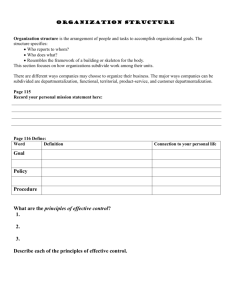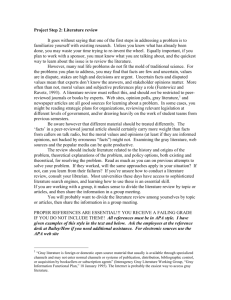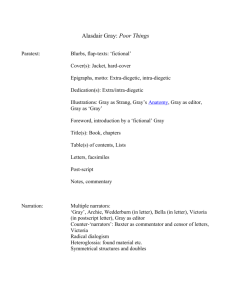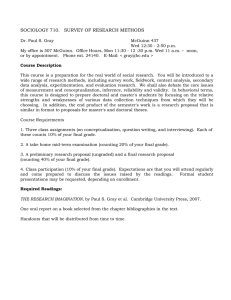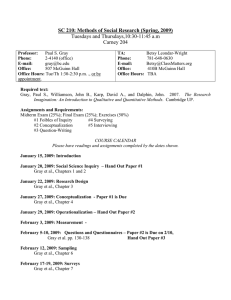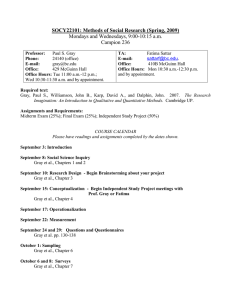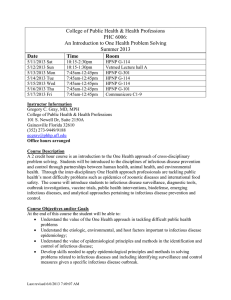David A. Karp
advertisement
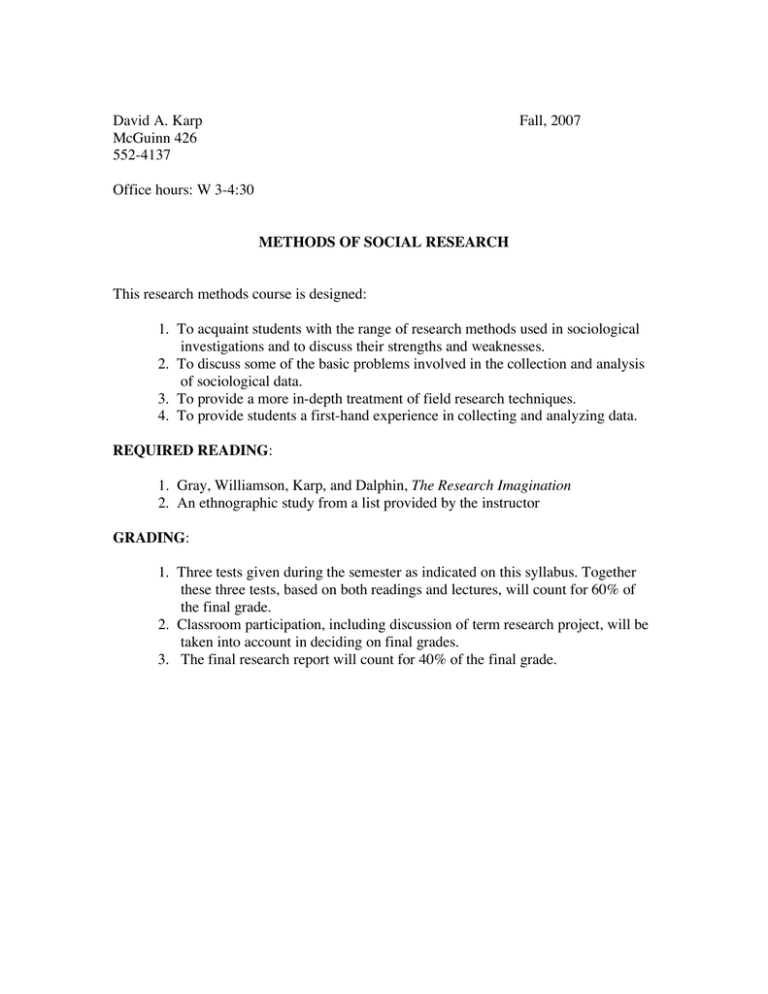
David A. Karp McGuinn 426 552-4137 Fall, 2007 Office hours: W 3-4:30 METHODS OF SOCIAL RESEARCH This research methods course is designed: 1. To acquaint students with the range of research methods used in sociological investigations and to discuss their strengths and weaknesses. 2. To discuss some of the basic problems involved in the collection and analysis of sociological data. 3. To provide a more in-depth treatment of field research techniques. 4. To provide students a first-hand experience in collecting and analyzing data. REQUIRED READING: 1. Gray, Williamson, Karp, and Dalphin, The Research Imagination 2. An ethnographic study from a list provided by the instructor GRADING: 1. Three tests given during the semester as indicated on this syllabus. Together these three tests, based on both readings and lectures, will count for 60% of the final grade. 2. Classroom participation, including discussion of term research project, will be taken into account in deciding on final grades. 3. The final research report will count for 40% of the final grade. PART I FUNDAMENTALS OF RESEARCH (approximately 5 weeks) 1. INTRODUCTION (1 class) * why study research methods * course goals and requirements * information and everyday life Reading: No reading 2. METHOD AND METHODOLOGY (1-2 classes) * What is the purpose of sociological work? * Is all knowledge political? * questions of ethics * What makes knowledge claims credible? Reading: Gray, chapters 1 and 2 3. INDUCTIVE AND DEDUCTIVE MODELS OF INQUIRY (1-2 classes) * a continuum of research methods * steps in the research process * induction and deduction * the timing and production of theory * the nature of generalizations * the role of the researcher Reading: Gray, chapters 3 and 5 4. OBSTACLES TO CLEAR KNOWLEDGE OF SOCIAL LIFE (2 classes) * information and error * subject related errors * researcher related errors * setting related errors * triangulation of methods * unobtrusive measures Reading: Gray, chapters 4 and 6 5. SCIENCE AND ITS CRITICS (1-2 classes) * criteria of scientific investigation * truth in trouble * feminist methods Reading: Gray, chapter 10 EXAMINATION NUMBER 1 PART II DOING FIELDWORK (approximately 4 weeks) 6. INTERVIEWING (2 classes) * constructing a guide * having a conversation * thinking about data along the way * coding data * writing it up Reading: Gray, chapter 8 7. PARTICIPANT OBSERVATION (2 classes) * history of fieldwork in the United States * the structure of field notes * problems of access * first days in the field * theoretical assumptions and field research Reading: Gray, chapters 9 and 13 8. DISCUSSION OF STUDENT RESEARCH (4-6 classes) * brief presentations of research directions * general class discussion of ongoing projects Reading: selected ethnography EXAMINATION NUMBER 2 PART III COMPLEMENTARY METHODS (approximately 4 weeks) 10. ESTABLISHING CAUSALITY (1-2 classes) * the logic of survey research * experimental research Reading: Gray, chapters 7 and 12 11. THE VALUE OF COMPARISON (1-2 classes) * the uses of history * comparative research methods * looking at rates Reading: Gray, chapters 11, 14 and 15 12. RESEARCH FOR CHANGE (1-2 classes) *evaluation research *action research Reading: Gray, chapter 16, epilogue EXAMINATION NUMBER 3
